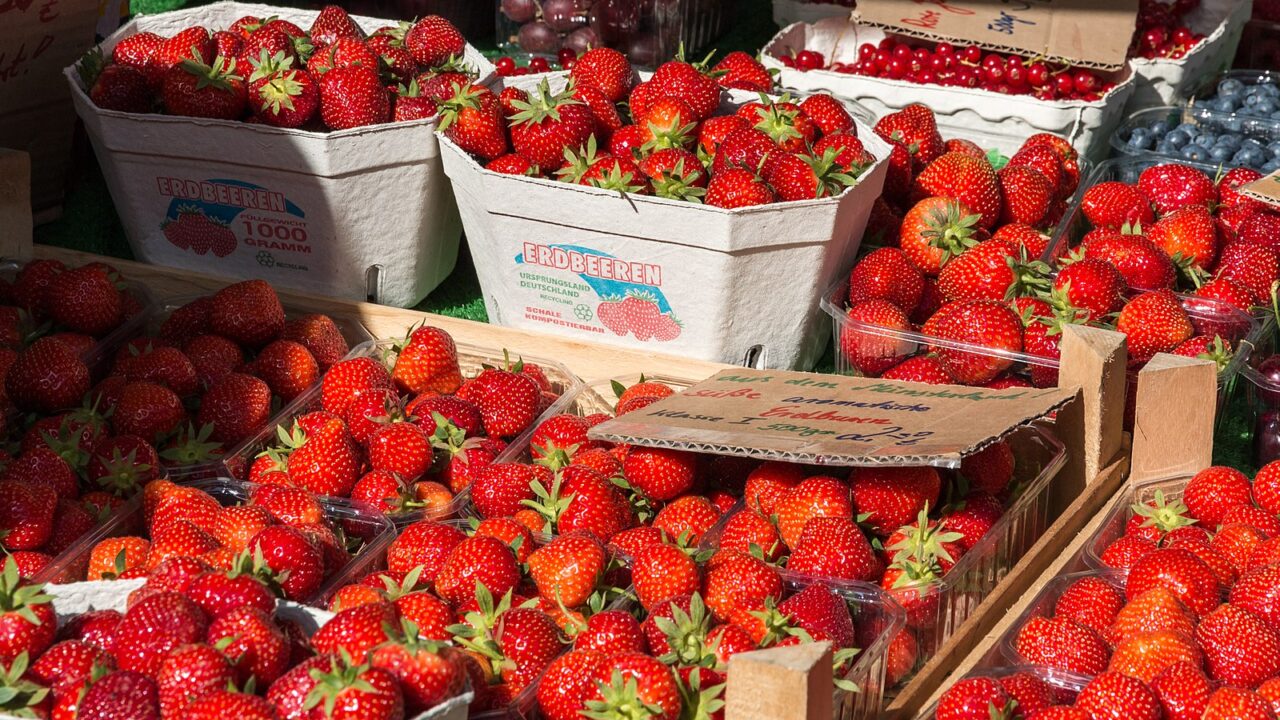 Münster, Wochenmarkt -- 2015 -- 7412.jpg by Dietmar Rabich is licensed under CC BY-SA 2.0
Münster, Wochenmarkt -- 2015 -- 7412.jpg by Dietmar Rabich is licensed under CC BY-SA 2.0
With global leaders warning about a coming food crisis amid rising inflation, fertilizer shortages, and crisis in the east, an unexpected agricultural industry is being endangered by heavy-handed federal policies.
Nathan Carson, head of Supply Chain Operations for Chemical Dynamics, Inc. in Plant City, Florida, outlined in a thread how the Environmental Protection Agency’s regulations are endangering strawberry farming nationwide. Plant City produces 20% of the nation’s strawberries yearly. However, due to existing in a tropical climate, agriculture is particularly vulnerable to disease. For decades, pesticides effectively mitigated the issue.
Carson explains that one of these antifungal agents, Thiram “has been used for more than 50 years without incident…applied using overhead sprayer.” Despite a successful track record, the EPA now seeks to ban Thiram. This action, says Carson, “would leave growers with no real way to stop the spread of diseases botrytis and neopestalotiopsis” and “effectively kill the Florida strawberry industry.”
The EPA acknowledges that overhead spraying drastically reduces the risk of harm in their own records, but regardless seeks to contradict its own science and completely ban Thiram. They instead recommend the use of fungicides such as Mancozeb and Captain, which Carson notes “aren’t approved for use on strawberries” and aren’t “designed for full-year coverage” like Thiram is. Strict rules already exist for Thiram use and research on the safety of the product has existed for more than half a century.
All is not yet lost, however. Nathan Carson’s tweet has since gone viral with more than a thousand retweets. The proposed ban is open for public comment here, and the Florida Strawberry Growers Association has provided a template for concerned citizens to submit here. As Carson notes, “food security is national security,” and with food shortages looming Americans cannot afford to fall victim to misguided federal legislation which threatens to destroy a billion-dollar agricultural industry and century old Plant City tradition.

